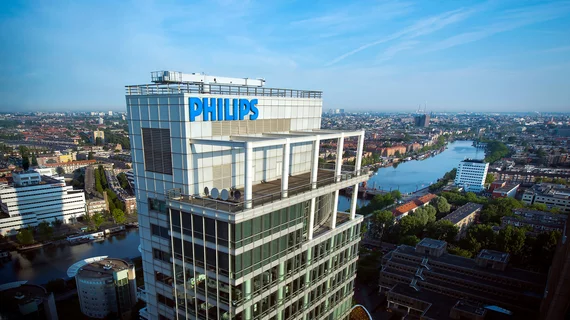Philips will pay $479M to settle class-action lawsuit stemming from product recall
Imaging industry giant Philips has agreed to pay $479 million (USD) to settle litigation related to the voluntary recall of certain sleep and respiratory care devices.
The Amsterdam-based multinational conglomerate said in an announcement that it planned to submit the settlement agreement to a U.S. District Court on Thursday. Philips emphasized that the document “does not include or constitute any admission of liability, wrongdoing or fault.”
“Subject to final court approval, payments to class members under the settlement are not expected to begin until the first quarter of 2024 at the earliest,” the company said in its announcement.
Philips Respironics first initiated the voluntary recall in June 2021, citing potential health risks related to the polyester-based polyurethane sound abatement foam in certain CPAP, BiPAP and mechanical ventilator devices. Following public statements on the issue, Philips received a “steep increase in complaints allegedly associated with possible foam degradation,” the company said in a February update. A “flood” of lawsuits followed, with users seeking compensation for injuries sustain from using the devices, Forbes reported.
The company set aside more than $615 million in the first quarter in anticipation of the forthcoming settlement. Philips said the final amount will vary based on, among other things, how many patients participate in the settlement and what the court awards for professional fees.
Thursday’s agreement does not settle any personal injury or medical monitoring claims stemming from the litigation, which Philips said it has moved to dismiss. Lawyers from the four firms who led the class action suit called the agreement an “important step toward justice,” urging their clients to take the deal. However, they plan to continue pursuing their additional claims against the company.
“We are confident in these claims and we look forward to holding Philips accountable for the physical harm they caused patients,” they said in a joint statement.

